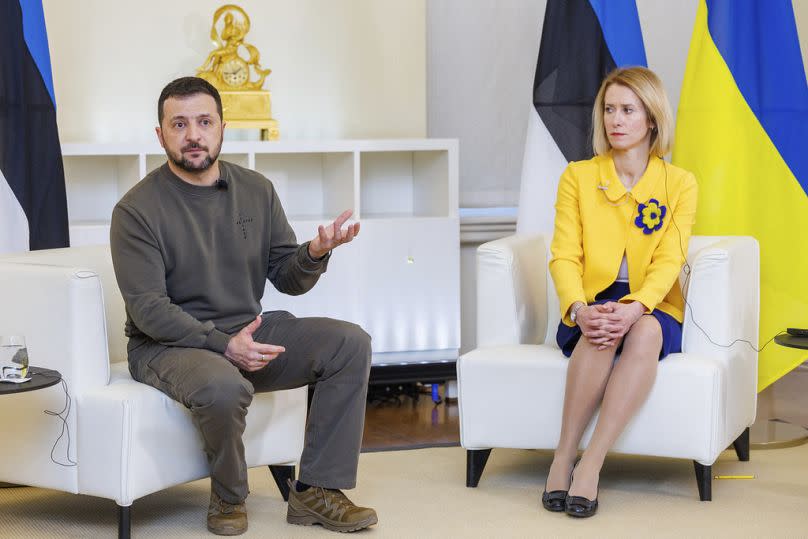Russia puts Estonian Prime Minister Kaja Kallas on 'wanted' list
Russia has listed Estonia's Prime Minister Kaja Kallas, a staunch backer of Ukraine, as a 'wanted' person.
According to the Russian Interior Ministry's database, Kallas is now wanted in connection with criminal charges, along with Estonian State Secretary Taimar Peterkop and Lithuanian Culture Minister Simonas Kairys.
The Interior Ministry did not initially specify which charges they faced.
But later, Kremlin spokesperson Dmitry Peskov said Kallas and the other two Baltic ministers had been designated as wanted due to alleged "desecration of historical memory."
The charges specifically relate to the "destroying monuments of Soviet soldiers," according to a source cited by the Russian state-owned TASS agency.
Kallas called Russia' move "nothing surprising".

"This is yet more proof that I am doing the right thing - the EU's strong support to Ukraine is a success and it hurts Russia," she wrote on X on Tuesday.
"The Kremlin now hopes this move will help to silence me and others – but it won't," Kallas added. "The opposite. I will continue my strong support to Ukraine. I will continue to stand for increasing Europe's defense."
Putting Estonia's leader on the wanted list marks a further escalation in tensions between Russia and the West.
Kallas is considered one of Ukraine's staunchest allies in the 27-country EU bloc.
She has consistently called for scaling up military support to Ukraine and suffocating Russia with further sanctions.
Turmoil hit Kallas in August 2023 after it was revealed her husband's company was continuing to operate in Russia.
Spain's Prime Minister Pedro Sánchez took to social media to tell Kallas that "the Spanish people and Europe" stood behind her.
"Putin's move is another proof of your courage and Estonia’s leadership in defending democracy and freedom," Sánchez said.
The President of the European Council, Charles Michel, also shared a message of solidarity.
"Kaja Kallas, you can wear this listing on Russia’s “wanted” list as a badge of honour for your relentless defense of the values and principles on which the European Union was founded," he said on X.
"We will not be intimidated by the Kremlin’s warmongering. And we stand with you in solidarity," Michel continued.
During a summit of EU leaders in February, Kallas called on countries to do more to provide Kyiv with the ammunition it needs to withstand Russia's offensive.
She said that the EU's failure to hit its target of providing Ukraine with one million rounds of artillery within a year was a "wake up call to do more."
Just months after Russia launched its invasion of Ukraine in February 2022, Kallas announced her government would remove up to 400 Soviet monuments from public spaces.
In August, Estonia removed a Soviet tank from the city of Narva, near the Russian border.
The Baltic states, once part of the USSR and previous Russian empires, have taken down several monuments linked to Russia's involvement in their countries since the start of the Ukraine war.
Critics say the moves are divisive and hand the Kremlin a propaganda victory, supporters describe the monuments as a painful reminder of Soviet occupation.
Russia has laws criminalising the “rehabilitation of Nazis” that include clauses punishing the desecration of war memorials.
Nearly a quarter of Estonia's 1.3 million population are ethnic Russians.


